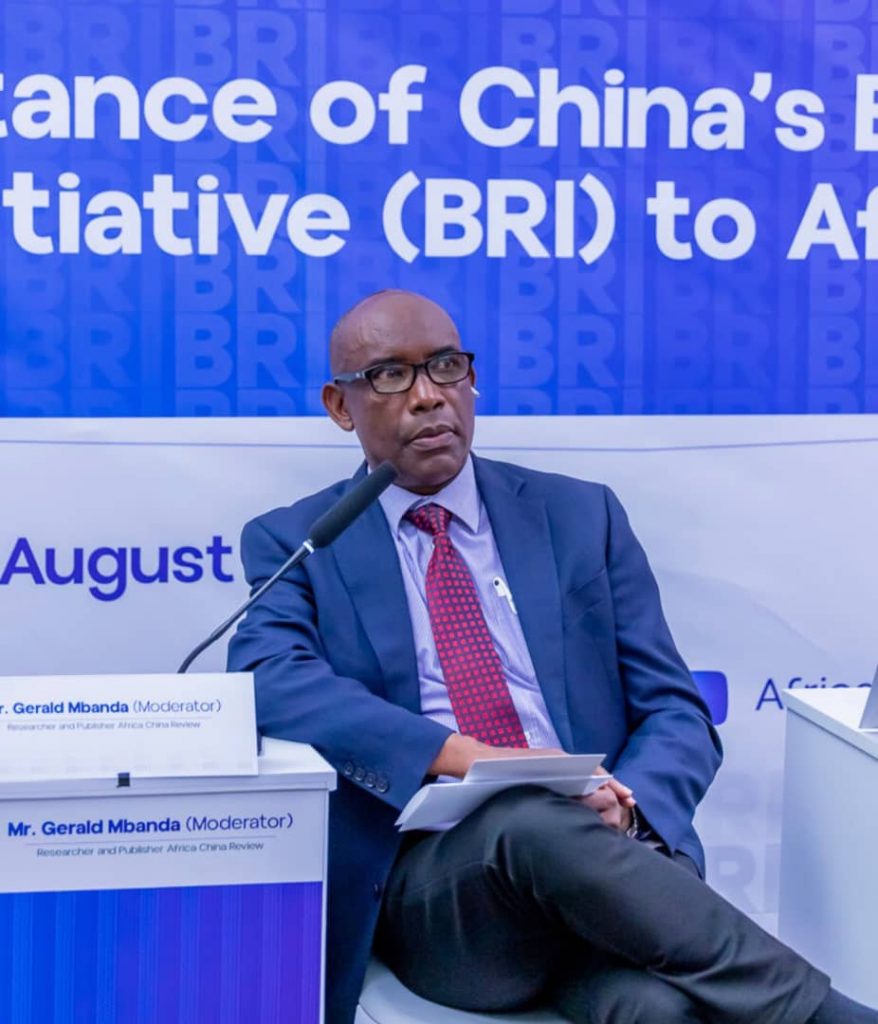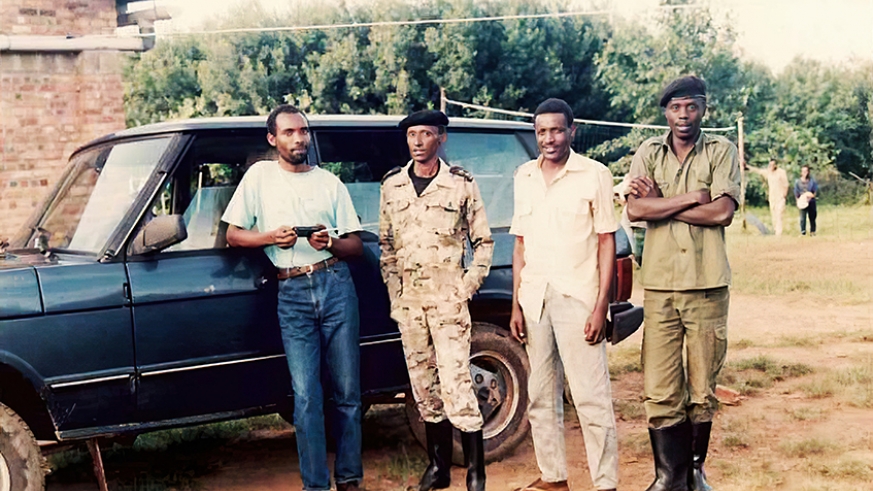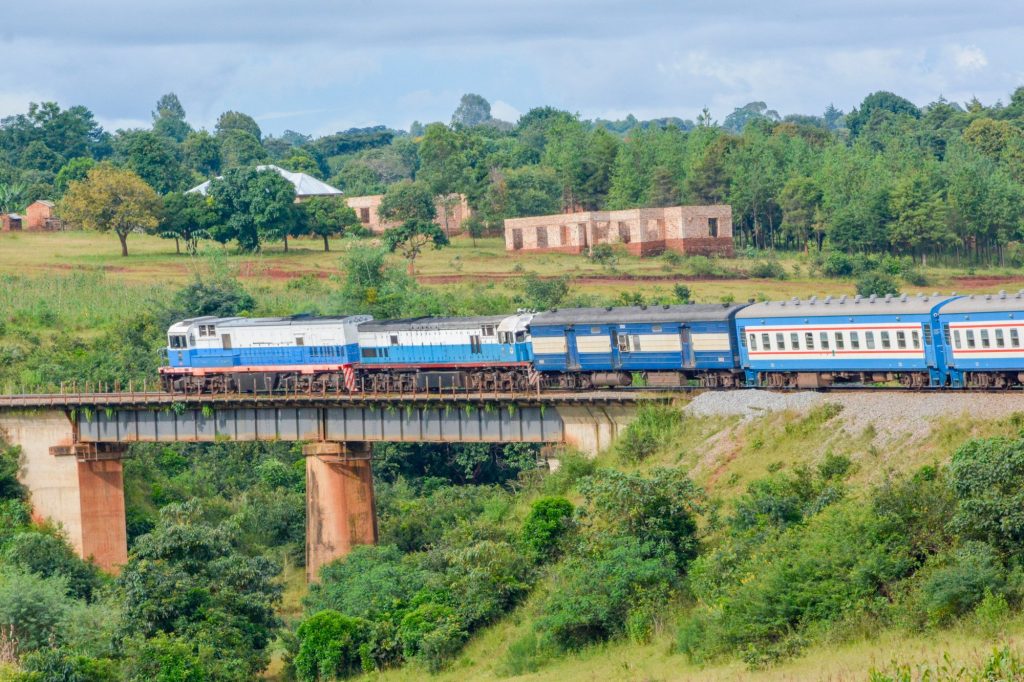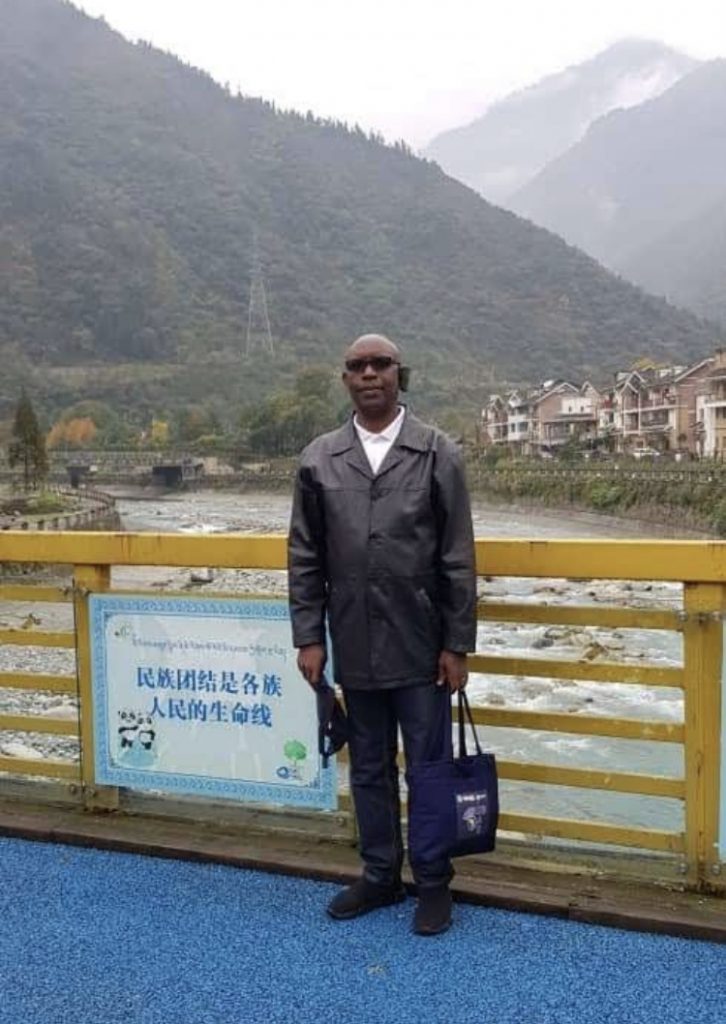Published: January 03,2024
By Gerald Mbanda

Photo Africachinareview
Some friends have asked me how I got to know and love China. It was not easy for me to explain in a few words, as we had no enough time to talk about the subject. When I was about the age of 10, my father used to read Chinese magazines written in the Swahililanguage. The magazines were sent to him by post office, whose box number I remember well which was 2822. Most times I would go to check in the post office box and bring the magazines to him. Since I did not understand Swahili, he could read to me the stories about China, which I found interesting. This is when I came to learn the name- Mao Tse-Tung.
When I grew up, I read literature on the liberationstruggles of African countries against colonialism and found that although China was not a rich country in the 1960s, it played a very big role to support African liberation movements. China offered military training courses to cadres from various liberation movements in Africa, either in training camps in Africa or in China.
My parents left Rwanda and went into exile in 1959, after political persecution led by Belgian colonialists, who instigated “ethnic violence” that left thousands of the Tutsi killed, while those who survived the ran for safety in neighboring countries and abroad.
Growing up in another country as a refugee I occasionally saw my father inviting many people at home especially at night. The guests were exclusively men and when they came, we were told to leave the living room and go to sleep. Being children in a curios age, we could sometimes peep at the guest wanting to know what was going on although we could not understand the point of discussion. Later with my elder bothers we came to learn that my father and the guests belonged to a guerrilla movement that wanted to wage war and return to their country.
With my brothers, we also came to learn that the gatherings at home were being lead by a few cadres who had been trained in China in guerrilla warfare. My father and the guest would listen to the China trained cadre and take notes. This was like a training of trainers who would also go to other parts of the country to train others. All this was done clandestinely in all countries with Rwandan refugees without the knowledge of the host countries. From the book Transforming Rwanda by Jean Paul Kimonyo, I came to learn that the Chinese government even gave financial assistance to the Rwandan King – Kigeli, estimated around $100,000- 200,000, which was to be used to support operations by Inyenzi guerilla movement to liberate Rwanda. It is through these ideas of liberating Rwanda in the 1960s, which sowed the seed of resilience and patriotism that lead to the final liberation of Rwanda by RPF in 1994.

As myself (left) and my liberation war colleagues were dedicated to Radio Muhabura, an RPA-run station that played a crucial role in keeping people informed about the progress of our struggle, both inside and outside the country.( courtesy)
Reflecting on China’s assistance to Africa, it is important to note that in 1970 when the Chinese government sponsored the construction of The TAZARA Railway to link the landlocked Zambia to the Tanzanian port of Dar es-Salaam, it was a project that improved the economies of the East and Southern African countries.

Photo internet
The purpose of the TARZARA railways for example, contradicts the plan for building the East African railway in the 1890s, by the British colonialists whichwas solely to serve their economic interests. The railway was used to ferry forcibly stolen resources including minerals especially cooper from East African inland to the port for export to Britain. The TAZARA railway project made me love China for the human heart of sharing development with the poor African countries, when the Chinese people did not live in excess.
IN recent years, China’s cooperation with Africa through forums like the Forum for China and Africa Cooperation (FOCAC)and The Belt and Road initiative(BRI) have established essential infrastructural foundations for economic and social development across the continent, leading to industrialization and value addition to exports. This has helped the African continent to escape “the poverty trap” by the western countries, when for decades they deliberately starved Africa from technology transfer, so that the continent continues to be a source of raw materials for their industries. The processed products would be returned to Africa at high costs. The industrialization supported by China has not only resulted into increased processed exports, but has also created jobs and improved skilled labour. This makes me love China.
When I first travelled to China in the summer of 2019, it was like a covering lid fell off my eyes and I saw a beautiful and prosperous China that I had never heard and seen before. In Africa, many people believe the politically motivated and biased narrative about China spread by western media. I marveled at magnificent cities never seen before, high speed railways, amazing roads and bridges, agricultural modernization and more innovations that show advancement in science and technology, all achieved in less than a generation. It was through hard work rather than exploitation that the Chinese were able to develop. I look at my country and Africa, and then I say to myself, how I wish we could work hard by emulating China.

Photo of my phone gallery
The first time I travelled in a metro in China I was amazed to see big numbers of people walking up and down the metro station. They were orderly and patient. A colleague from Africa we were together was amazed too and asked me, “How does this county with a population the same size as Africa manage to keep the crime rate almost zero and the people satisfied with public service delivery.”
I admire the Chinese people because they have put their culture at central to their development. Peace and harmony is a value they cherish. Although the country has people from different ethnic backgrounds, they are all united towards building a prosperous country and society. The CPC government has invested in people centred governance which responds to people’s needs. The people have confidence in their government and leadership for making the right decisions for the improvement of the country and the people. This makes me love China.
When the world was grappling with the COVID-19 pandemic, many developing countries including the entire African continent had no means to produce the lifesaving vaccines. People around the world died in hundreds as there was no medication to cure the virus. Western countries that had the means to produce the vaccines refused to share the vaccines with the less privileged countries. In fact, instead helping out, the rich countries horded the vaccines. China declared the COCID-19 vaccines a public good and expeditiously shared the lifesaving doses with the poor countries. Africa was able to save lives due to Chinese vaccines. This humanitarian act made me love China more.
Chinese people are friendly with no racial discrimination against foreigners. This is much different from western countries where racial discrimination is rampant not only to foreign visitors but also to citizens originating from other parts of the world. When my wife is in China, she stops complaining of fatigue and backache as she does at home. She walks long distances anxious to discover new places. She enjoys square dance performances, Chinese cuisine and making new friends.
Unfortunately, my father passed away a few years ago. I would be reading to him the stories about china in 2024 the same way he used to read to me stories about China in 1970s. He would watch TV channels to see the development of China that was absent in the 70s. He would be happy with his grandson who not only loves China, but also speaks fluent Mandarin.
My family and I, always look forward to the next visit to China as every trip is exciting, meeting with friends and experiencing new amazing changes in the development trajectory of China. We love China which is our second home.
I wish you all a Happy New Year 2024.
Gerald Mbanda is a Researcher and publisher on China and Africa.
For comments or opinion write to us on info@africachinareview.com
 Africa -China Review Africa -China Cooperation and Transformation
Africa -China Review Africa -China Cooperation and Transformation
